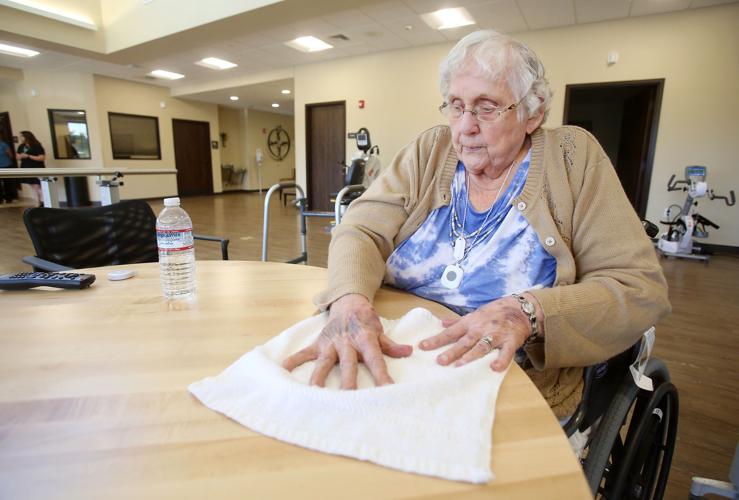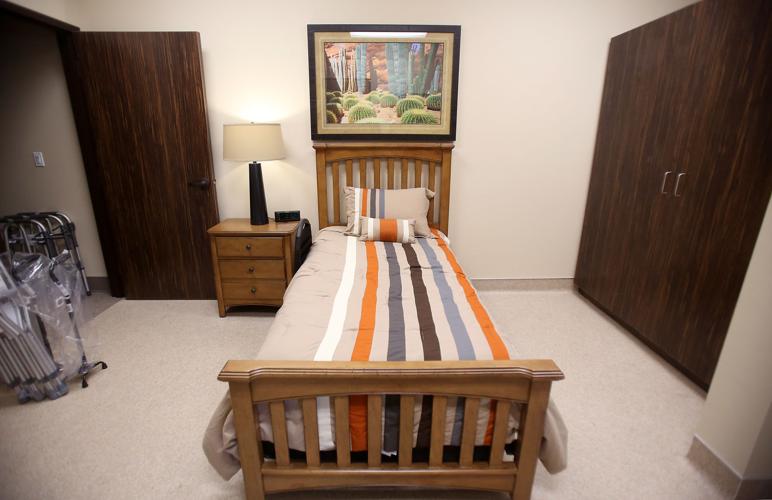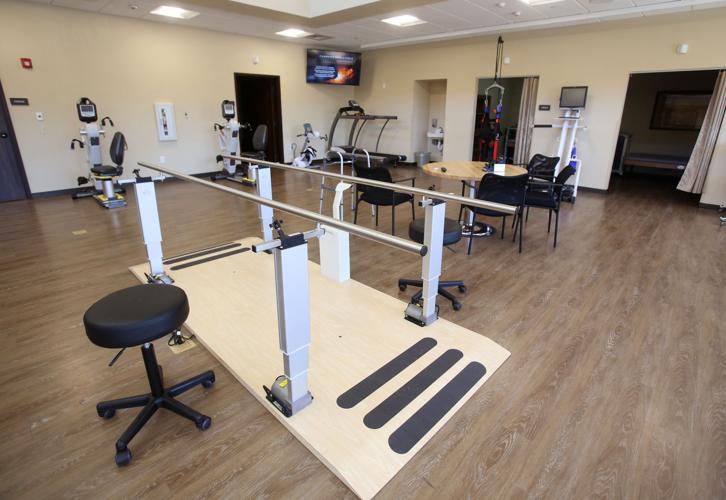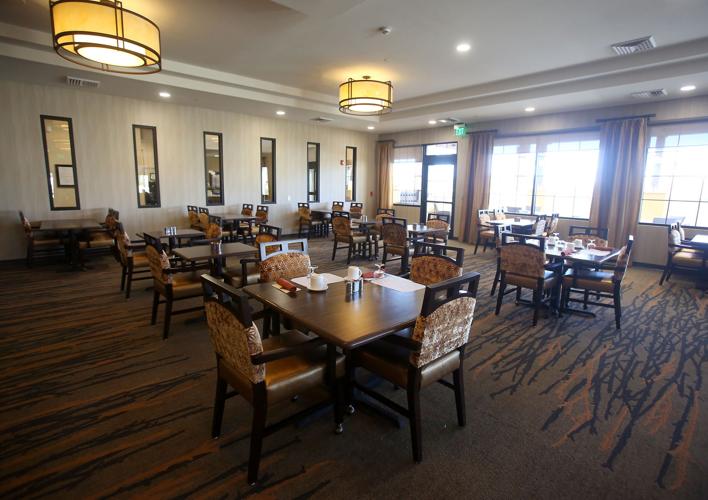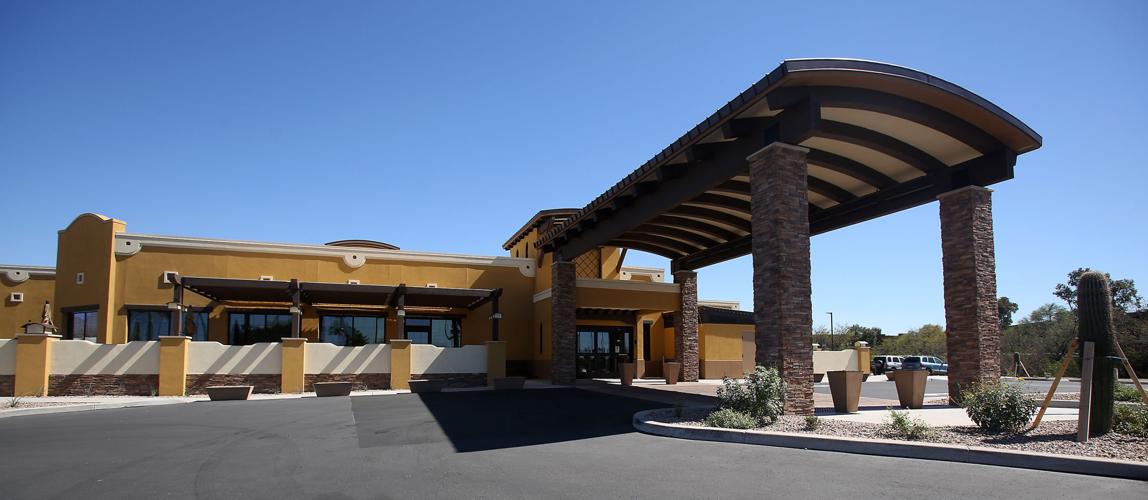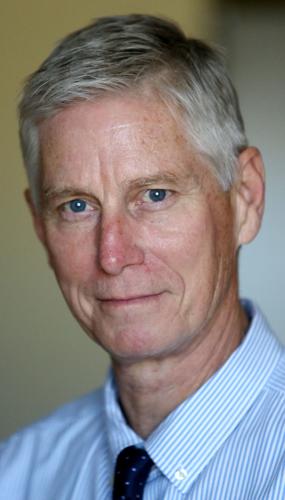Tom Hines
A new short-term rehabilitation center for Medicare patients is up and running with plans to employ up to 100 people by the end of the year.
Santé of Tucson, at 2040 N. Wilmot Road, opened in January. It has no long-term component so there is a lot of daily movement of customers, which the company refers to as guests.
A unique feature of the facility is a restaurant, Ocotillo Restaurant, that is open to the public to encourage interaction, said Tom Hines, administrator of Santé of Tucson.
“It takes some of the stigma out of where you are,” he said.
A beauty shop space that will be leased by a small-business owner will also be open to the public.
The two-story, 68,000-square-foot facility has a capacity for 103 people with 71 private rooms and 16 double-occupancy room.
Individual rooms have kitchenettes and a small dining table. The private rooms also have a hide-a-bed for guests.
The average stay is 21 days, Hines said.
In the rehabilitation areas, there is a mock kitchen, laundry room, bedroom and bathroom to practice transferring skills at home.
A training patio features different terrain, such as bricks, tile, grass and concrete stars.
Currently, Santé is taking only Medicare patients.
There are about 30 employees working at Santé, and Hines said he plans to bring staffing levels up to 100 by the end of year.
Jobs include occupational and physical therapists, skilled nursing, housekeeping, food services, housing and maintenance workers.
Visit jobs.santecares.com
NEED FOR ELDER CARE
Elder care is the fastest-growing employment sector within the health care industry, research from the Eldercare Workforce Alliance shows.
And, in many states, health care is the only field that has grown in the past five years.
According to the Bureau of Labor Statistics, the health-care labor market is expected to generate more than 3 million new jobs by 2018 — more than any other industry — because of the rapid growth in the elderly population.
The alliance notes that there is a shortage of health professionals and direct-care workers with specialized training in geriatrics, and a bigger shortage of geriatrics faculty to train this workforce.
Experts say elder care is a special challenge in health-care work.
Workers must have extreme patience and a thick skin.
Elaine Wozniak owns the Regency Senior Club, a day healthcare center for adults in Tucson. Since opening last year, she has changed the way she interviews prospective workers.
“I ask about their family relationship,” she said. “The people who had their grandparents move in with them, or their grandparents lived down the street are the ones I want.
“How we were raised has a big impact, even more than what you learn in school.”
As a teenager Wozniak, now a registered geriatric nurse, remembers taking care of her 102-year-old great-grandmother.
“I used to help her change her clothes, and it wasn’t always fun,” she said. “She wanted to watch Lawrence Welk and I wanted to watch something else, but when I’m asked what drove me into geriatrics, it’s that time I spent with her.”
When people inquire about working in elder care, Wozniak stresses the need to possess much patience and compassion.
“People have to understand that everything about aging is slower,” she said. “They move slower, they talk slower.
“I don’t know what the secret recipe is, but I don’t think compassion can be taught.”


